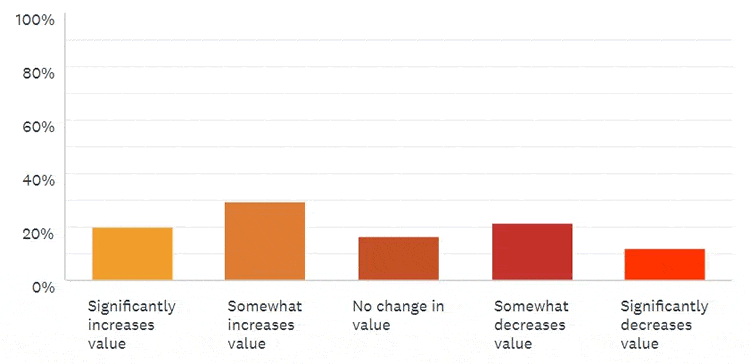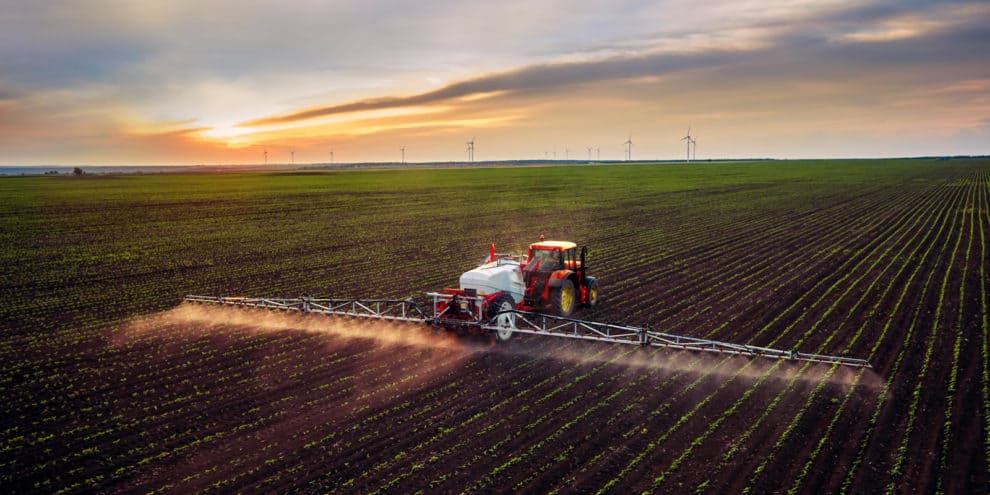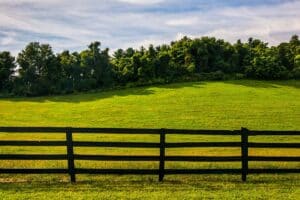According to the August LANDTHINK Pulse results, 29.39% of respondents believe that a long term lease (farm, timber, etc) would SOMEWHAT INCREASE the value of the land. Land is about as solid as an investment gets. Land is a low-maintenance tangible asset, a hedge against inflation, and a unique investment capable of generating multiple streams of income. It’s a hands-off, long-term investment that doesn’t typically require too much of your time and effort. However, land ownership comes with a price. Initial investment costs are followed by a variety of expenses such as property taxes and land management costs and the income generated from a lease can offset carrying costs.
August Pulse Sponsored by
Last month, the August Pulse asked: In your opinion, what impact does a long term lease (farm, timber, etc) have on land value?
There are many methods from which landowners can generate income from their property. The challenge lies in figuring out what income opportunities are compatible with the land, determining which will bring the best returns, and which will add value to the property.
A land lease can involve all different kinds of tenants. It can be a rental of farmland for growing crops or raising livestock, or an agreement between a landowners and hunters that allows them to visit and hunt on the land. It can mean energy companies leasing land for large-scale solar and wind turbine projects, or even a cell phone company leasing space and access for a tower. If a landowner has a massive tract of land, it can mean renting the land to a timber company that will pay the landowner a premium. The lessor and lessee agree on a value for the land lease and it must be mutually beneficial to both parties.
Demand for private land use across the nation has increased. Both individuals and companies are continuously searching for property to lease or rent, and the financial incentive has more and more landowners entering into a lease agreement. The obvious benefit from leasing land that you own is the extra income that cushions your wallet, but leasing your land can have an impact on its value.
Long term leases typically add resale value to your property as a whole, and sometimes lease payments (like from wind or solar projects) are transferable to the new owners. A long term perspective allows the tenant- whether they’re a farmer, hunter, or company- to reasonably employ good land stewardship and management practices. Long term leases are conducive to tenant security, which encourages them to make investments that will add value to the property. Having a longer planning horizon helps to ensure the tenant cares for and improves the resources of the land.
For example, a farmer that leases the land for the long term will follow a soil management plan that includes replenishing nutrients, maintaining filter strips, and preventing erosion. Soil characteristics is one of the factors a property appraiser considers when determining the value of a property. Timberland companies, cell phone companies, and energy companies will often improve access to property. Access is another factor appraisers use to determine value. Timberland companies maintain and improve the health, productivity and habitat of forested properties, and quality and characteristics of timberland is another factor that determines land value.
Land leases typically deliver secure, long-term income to landowners. But entering into a lease agreement is a decision that should only be made after careful consideration of the tradeoffs. It is very important that the lease is thorough and legally accurate so landowners are protected from misunderstandings. Both parties should consult an attorney to review any lease before it is signed so the attorney can clearly explain legal rights and responsibilities.

Our audience held mixed views on how long term leases affected land value, but the largest percentage (29.39%) of respondents said an existing long term lease would SOMEWHAT INCREASE value, followed by 21.51%, who said it would SOMEWHAT DECREASE value. This was followed closely by 20.20% who said a long term lease would significantly INCREASE value. Only 16.75% of our audience believed that a long term lease would have NO EFFECT on the value of the land, and a mere 12.15% said that a long term lease would significantly DECREASE value.
LANDTHINK would like to thank Tutt Land Company for sponsoring the August Pulse and for coming up with a very interesting question to pose to our audience. The Tutt Family has more than 70 years experience in owning, managing, and developing rural land. Their knowledge and experience of land has helped them to grow into a company with 15 professional agents that have handled real estate brokerage sales in Alabama, Arkansas, Mississippi, Tennessee and Florida. Tutt Land Company is a full service real estate and land management company offering development services, timberland management and brokerage of land, residential and commercial properties. Give one of their agents a call and let them start working for you today!
Become a Pulse sponsor! It’s a great way to ensure your brokerage is the first one buyers and sellers call when they have a need to buy or sell property. You’ll get insane exposure on Social + Email + Web. That’s 500,000+ monthly eyes on you! Once you have it, you won’t want to give it up! Pulse sponsorships are offered on a first come first serve basis and are subject to certain limitations. If your business would be interested in sponsoring a Pulse question, please contact us soon.
Do you have a Pulse question you’d like to suggest? Submit your question and we might choose yours!
We want to know what you think about our September Pulse question, chosen and sponsored by HomeLand Properties: Would you consider purchasing a property with an active oil or gas well, knowing the oil/gas rights will not convey with the purchase? Answer now.
This content may not be used or reproduced in any manner whatsoever, in part or in whole, without written permission of LANDTHINK. Use of this content without permission is a violation of federal copyright law. The articles, posts, comments, opinions and information provided by LANDTHINK are for informational and research purposes only and DOES NOT substitute or coincide with the advice of an attorney, accountant, real estate broker or any other licensed real estate professional. LANDTHINK strongly advises visitors and readers to seek their own professional guidance and advice related to buying, investing in or selling real estate.











Add Comment